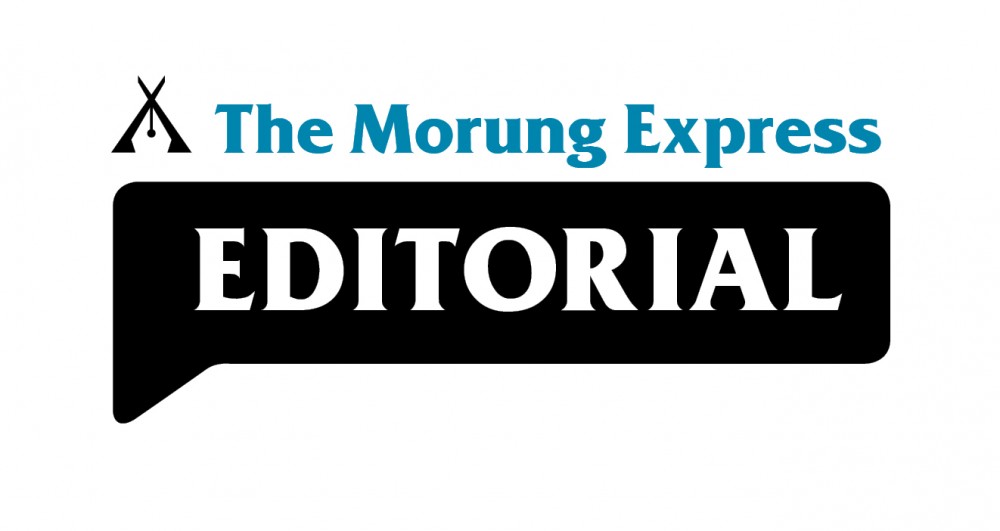
Moa Jamir
There are often stylised arguments while deliberating the issue of empowerment, particularly in the context of progressive policy and action designed to benefit a section of the populace, hitherto underrepresented or marginalised. The debate on Naga women’s participation in the decision making process via representative politics and other mechanisms is a casualty of such ‘stylisation.’
Many well-intentioned individuals often argue that empowerment should come from within, locating it as both the means and ends in the quest for political empowerment. While, it may apply in the economic and educational sphere, but nothing can be further from the truth when it is concerning the social-political arena. Among others, the first obstacle is the existing societal set-up and polity.
Despite being at the forefront of many sectors, women in Nagaland continue to be left out of political as well as structural decision making and failure in this crucial area will be detrimental to the otherwise tremendous strides, this column has rightly commented on Monday (March 8). While there is some exception garnering optimism, these are too few and too far apart, it added, counting the attempt to conduct the Urban Local Bodies (ULBs) in the State with 33% women’s reservation in 2017 as a missed opportunity.
Likewise, the egalitarian nature of the Naga society is often put forward to justify the opposition to any targeted policy intervention on political representation. Women being ‘forefront of many sectors’ is vaunted as its manifestation. A patronising notion of women being protected, loved and cared for, is further employed, thus negating their need to foray into the political arena.
Accordingly, social organisations and others postulate that any changes regarding women leadership should be organic, implying that they should come from within. Nonetheless, beyond opposition to any ‘imposed’ structure, they have not been able to engender platforms and mechanisms to address the lack of women in decision-making or policymaking. As noted above, there are exceptions, but far and between.
The organic argument, sometimes, is advocated by some women themselves, in an ironic but misplaced juxtaposition of assumed egalitarianism and internalised patriarchal values, entrenched over time ‘immemorial.’ While the former ignore huge limitation in form of traditional institutional set-up and polity in a predominantly patriarchal society; in the latter’s worldview, women’s role is consciously and subconsciously assigned to the private sphere, not in the public realm.
Despite arguing for their participation, mainstream political parties in the State also do not go beyond mere tokenism both in the internal party matter and external electoral process. While women seldom hold significant positions within the party, apart from the ‘Women’s Wing,’ only 19 women have been fielded to contest in the State’s Assembly elections in over 57 years of Statehood. The first and only woman from Nagaland to get elected either in a state or union election was nearly 44 years ago when Rano M Shaiza won a Lok Sabha seat in 1977. Most importantly, all women candidates contested either as an independent or on a national party ticket and not from any mainstream State Party, except in 1969.
Moments for change beyond the stylised arguments are countered aggressively as Naga anthropologist Dolly Kikon (2017) observed fittingly after the last ULBs reservation issue: …The processes of negotiating for women’s rights in Naga society are often regarded as a demand outside the traditional customary set-up. It is by this logic that Naga women’s assertions for gender justice have been tagged as an “anti-Naga…”
“No country prospers without the engagement of women. This is the only way we will get real societal change that incorporates women in decision-making as equals and benefits us all…,” stated the UN Women Director Phumzile Mlambo-Ngcuka in her 2021 International Women’s Day message.
To achieve this, it is imperative to go beyond those stylised arguments to ensure women empowerment and by extension, their participation in the political decision-making process. Given the historical and existing reality, a State’s policy is imperative to allow such processes and create a level playing field. In such an environment, Naga women have time and again proven themselves, most able. Limiting the engagement of the most capable member in the political sphere has huge consequences for any society.
For any comment, drop a line to jamir.moa@gmail.com






